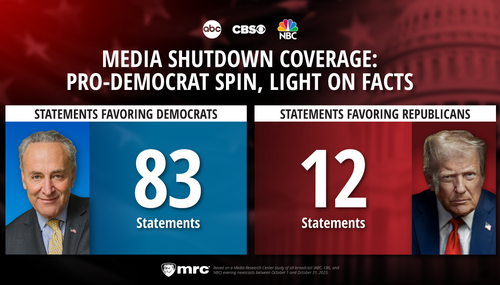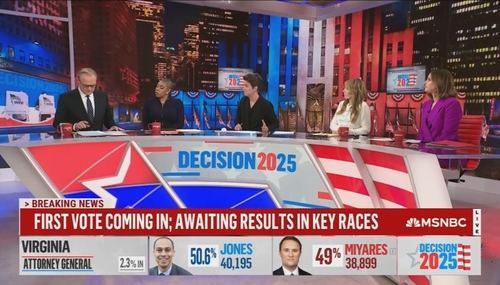The day after President Obama issued a call for bipartisan cooperation in Congress in his fifth State of the Union address, a powerful Democratic senator thumbed his nose at the White House regarding a matter enjoying significant bipartisan support and which could help boost the U.S. economy.
But perhaps because it doesn't fit the "Republicans are obstructionists" narrative, ABC, CBS, and NBC all ignored Senate Majority Leader Harry Reid (Nev.) announcing his strong opposition to President Obama's call for Congress extending him fast-track negotiations on free-trade agreements.
Here's how the Wall Street Journal's William Maudlin and Siobhan Hughes opened their January 30 front-page story, "Reid Deals Body Blow To Obama On Trade" (emphasis mine):
WASHINGTON—Senate Majority Leader Harry Reid broke publicly with the White House Wednesday on trade policy, instantly imperiling two major international trade deals and punching a hole in one piece of the economic agenda the president outlined in his State of the Union address a day earlier.
Mr. Reid told reporters he opposed legislation aimed at smoothing the passage of free-trade agreements, a vital component to negotiating any deal, and pointedly said supporters should back down.
"I'm against fast track," Mr. Reid (D., Nev.) said, using the shorthand term for legislation that prevents overseas trade agreements from being amended during the congressional approval process. "I think everyone would be well-advised just not to push this right now."
The move spells trouble for two sets of complicated talks, one with the European Union and the other with countries in the Asia-Pacific region. Both deals likely would have required such a "fast track" approval to clear the Congress. The U.S.'s negotiating partners wouldn't likely commit to a final agreement that could be unpopular back home without assurances that it couldn't be modified by U.S. lawmakers.
Mr. Reid declined to say whether he would stop fast-track legislation from coming up for a Senate floor vote, but other senators said his opposition was important. "You can kiss any new trade deals goodbye," said Sen. John Cornyn (R., Texas.) "I think the majority leader's focus is on the November elections and he doesn't want to expose his vulnerable members to controversial votes." Added Gary Hufbauer, senior trade expert at the Peterson Institute for International Economics in Washington: "It's a one-two punch against trade policy," he said.
Mr. Reid's comments amplified a fight within the Democratic Party over trade at a surprising moment. Mr. Obama said in the State of the Union speech that fast-track authority and the trade deals would help boost hiring at small businesses, which he said account for 98% of U.S. exporters. Mr. Reid's opposition places him as the leader among Democrats who contend trade deals are bad for U.S. workers.
Reid has long served as the president's chief yes-man in the Senate, ever doing the White House's bidding, so this stand of defiance from the party line is, accordingly, newsworthy. It doesn't, however, conveniently fit the liberal media narrative that Republicans are "do-nothing" obstructionists who oppose the president at every turn.




